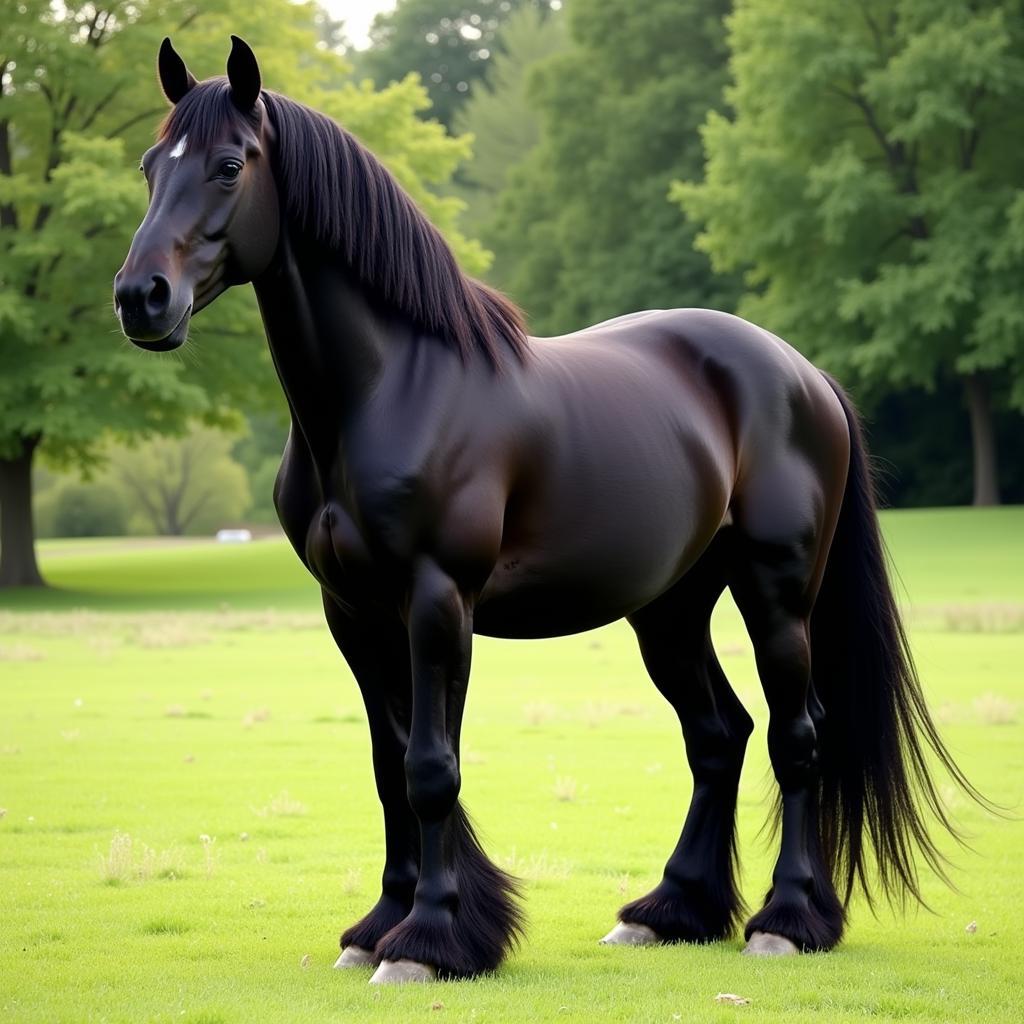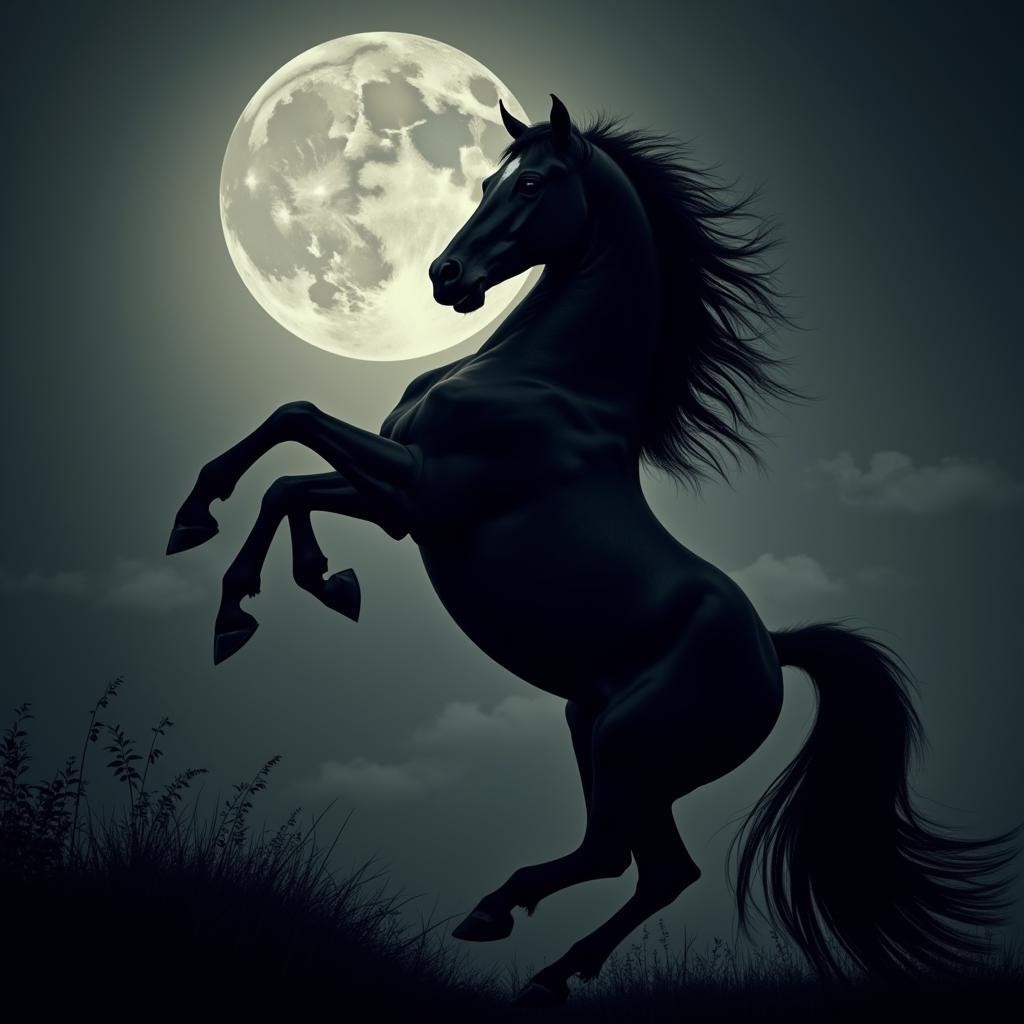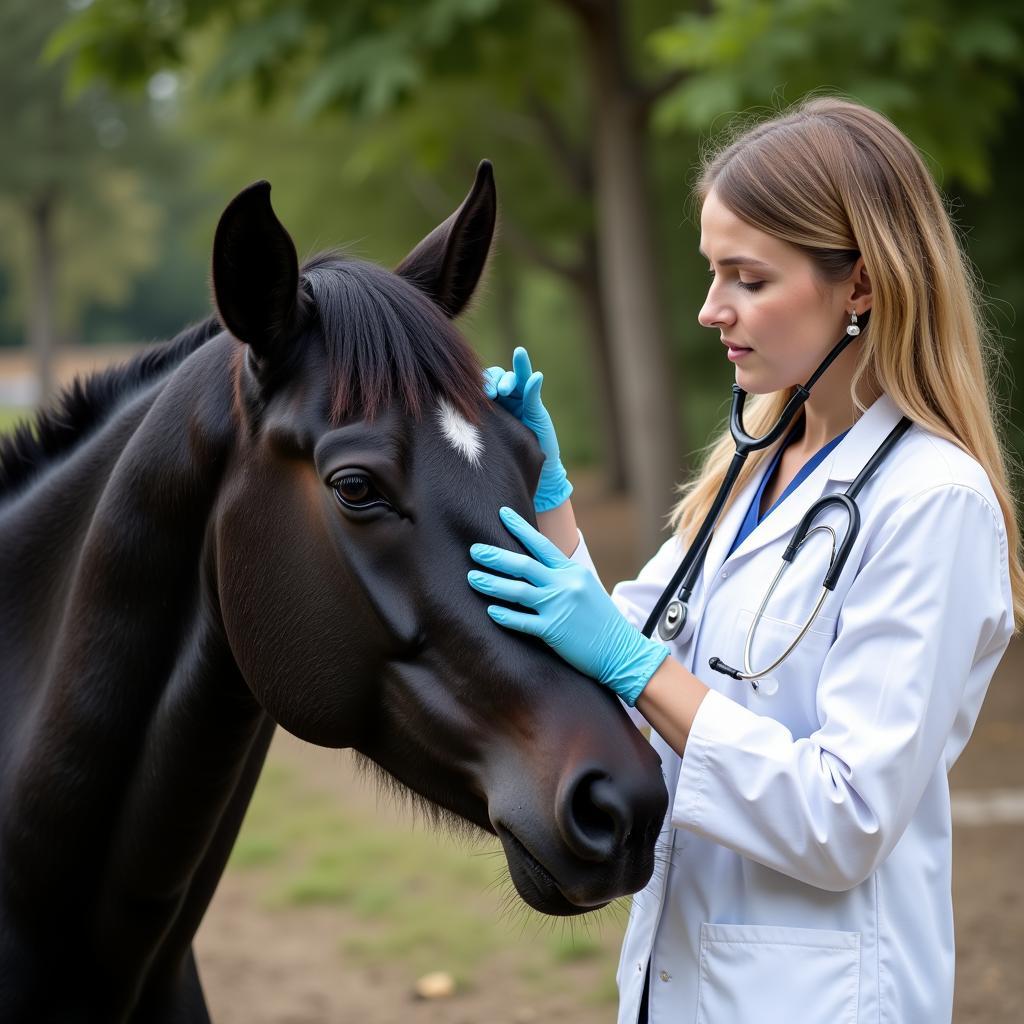The All Black Horse, a creature of captivating beauty and power, has long held a special place in human history and mythology. From sleek Friesians to powerful Mustangs, a truly black coat is a sought-after trait. This guide will delve into the genetics, care, and cultural significance of these magnificent animals.
Unveiling the Mystery of the All Black Coat
What makes an all black horse truly “all black”? The answer lies in genetics. A horse’s coat color is determined by a complex interplay of genes. For a horse to appear completely black, it must possess the dominant allele for black (E) and lack any other genes that modify or dilute this base color. Even a small patch of white can disqualify a horse from being considered truly “all black.” This genetic puzzle is what makes these horses so unique. It’s important to distinguish between a true black horse and a dark bay or brown horse, which can appear black in certain lighting conditions. True black horses have black skin, black hooves, and black points (mane, tail, and lower legs). After this introductory paragraph, let’s take a look at a fantastic black stick horse model: black stick horse.
 All Black Friesian Horse Standing in a Field
All Black Friesian Horse Standing in a Field
Caring for Your All Black Horse
Owning an all black horse comes with unique responsibilities. Their dark coats absorb more heat, making them more susceptible to overheating in sunny climates. Providing adequate shade and fresh water is crucial, especially during the summer months. Grooming is also essential. Black coats show dust and dirt easily, so regular brushing and bathing are necessary to maintain their sleek appearance. Just like any other horse, all black horses require a balanced diet, regular exercise, and routine veterinary care.
The All Black Horse in History and Mythology
Throughout history, the all black horse has been imbued with symbolic meaning. In some cultures, they represent power, mystery, and even death. In others, they are seen as symbols of strength, elegance, and nobility. From the mythical black steeds of the Wild Hunt to the heroic chargers of literature and film, these magnificent creatures continue to capture our imaginations. Think of the iconic image of a black horse with a skilled rider, a powerful symbol of partnership and grace. For those interested in seeing this powerful imagery, check out our article on black horses with riders: black horse with rider.
 Mythological Black Horse Rearing in Moonlight
Mythological Black Horse Rearing in Moonlight
Different Breeds, One Shared Trait: The All Black Coat
While the Friesian is perhaps the most well-known all black horse breed, several other breeds can also produce truly black horses. These include the Murgese, the Kladruber, and certain lines of Mustangs and Quarter Horses. Each breed has its own unique characteristics and history, but they are all united by the striking beauty of their black coats. If you’re fascinated by the symbolism of horses, you might also be interested in traditional crafts like the black dala horse.
Are All Black Horses More Prone to Certain Health Issues?
While the black coat itself doesn’t directly cause health problems, some black horses are more susceptible to certain conditions like melanoma. Regular veterinary check-ups are essential for early detection and treatment. Beyond specific health concerns, proper nutrition and exercise are key to maintaining the overall health and well-being of your all black horse.
 Veterinarian Examining an All Black Horse
Veterinarian Examining an All Black Horse
Conclusion
The all black horse, with its captivating beauty and rich history, continues to inspire awe and admiration. From their unique genetics to their specialized care requirements, these magnificent animals hold a special place in the equine world. By understanding their needs and appreciating their symbolic significance, we can ensure that these stunning creatures continue to thrive for generations to come. If you’re interested in the more fantastical side of horses, you might enjoy our article on flying horses: black horse flying. Remember, owning an all black horse is a privilege and a responsibility.
FAQ
- Are all black horses rare? Yes, a truly all black horse is relatively rare.
- Do all black horses fade in the sun? Yes, prolonged sun exposure can cause their coats to fade.
- What is the best way to groom an all black horse? Regular brushing and bathing with specialized shampoos can help maintain their coat’s shine.
- Are all black horses more expensive? Not necessarily, the price depends on the breed, lineage, and training.
- Can a foal born black change color? Sometimes, a foal that appears black at birth might lighten as it matures.
For further assistance, please contact us at Phone: 0772127271, Email: [email protected] or visit us at QGM2+WX2, Vị Trung, Vị Thuỷ, Hậu Giang, Việt Nam. We have a 24/7 customer support team.